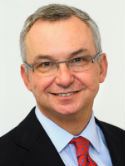| Abstract: |
The results of both retrospective and prospective studies suggest that the effectiveness of systemic adjuvant chemotherapy with doxorubicin and cyclophosphamide for breast cancer may be related to the dose intensity of these agents. Recent trials also have demonstrated the high activity of paclitaxel (Taxol; Bristol-Myers Squibb Company, Princeton, NJ) against metastatic breast cancer. Clinically, paclitaxel appears to be non-cross- resistant with doxorubicin, but the unique and overlapping toxicities of these three agents might preclude concurrent adjuvant administration. A possible solution is sequential rather than concurrent administration, an approach that kinetic modelling predicts to be superior. A pilot study testing dose-intensive sequential administration of doxorubicin/paclitaxel/cyclophosphamide enrolled 42 patients with a median age of 42 years who had resected breast cancer metastatic to four or more ipsilateral axillary lymph nodes. Intravenous treatment, given at 14-day intervals, began with three cycles of doxorubicin 90 mg/m2, followed by three cycles of paclitaxel 250 mg/m2, given as a 24-hour infusion, and, finally, three cycles of cyclophosphamide 3 g/m2. Selected patients received radiotherapy. The median number of positive lymph nodes was eight (range, four to 25), and the median tumor size was 3.0 cm (range, 0 to 11.0 cm). Granulocyte colony-stimulating factor support was given. Both hematologic and nonhematologic toxicity were substantial but manageable. Hospital admission was necessary in 62 (17%) of 369 chemotherapy cycles in 29 patients (69%). As planned, the median intertreatment interval was 14 days through all nine cycles of therapy, and the median delivered dose intensity exceeded 98% for all three agents. The median follow-up from local control surgery in December 1994 was 448 days (range, 82 to 632 days). Three patients (7.2%) had disease relapses, one during the doxorubicin portion of treatment and two (4.9%) who had completed treatment with all three agents. Sequential dose-intensive therapy with doxorubicin/paclitaxel/cyclophosphamide has manageable toxicity and, with short follow-up, is a promising new regimen suitable for randomized testing. |
| Keywords: |
adult; middle aged; major clinical study; clinical trial; neutropenia; doxorubicin; fluorouracil; dose response; drug efficacy; paclitaxel; cancer adjuvant therapy; cancer radiotherapy; chemotherapy, adjuvant; radiotherapy, adjuvant; methotrexate; neurotoxicity; follow-up studies; lymph node metastasis; lymph node dissection; lymphatic metastasis; neoplasm recurrence, local; breast cancer; mastectomy; tumor volume; blood toxicity; antineoplastic combined chemotherapy protocols; drug administration schedule; antineoplastic agents, phytogenic; cyclophosphamide; breast neoplasms; axillary lymph node; pilot projects; antineoplastic agents, alkylating; blood transfusion; tamoxifen; axilla; mesna; antibiotics, antineoplastic; infusions, intravenous; granulocyte colony stimulating factor; granulocyte colony-stimulating factor; intravenous drug administration; injections, intravenous; oral drug administration; patient admission; amenorrhea; subcutaneous drug administration; humans; human; female; priority journal; article
|













